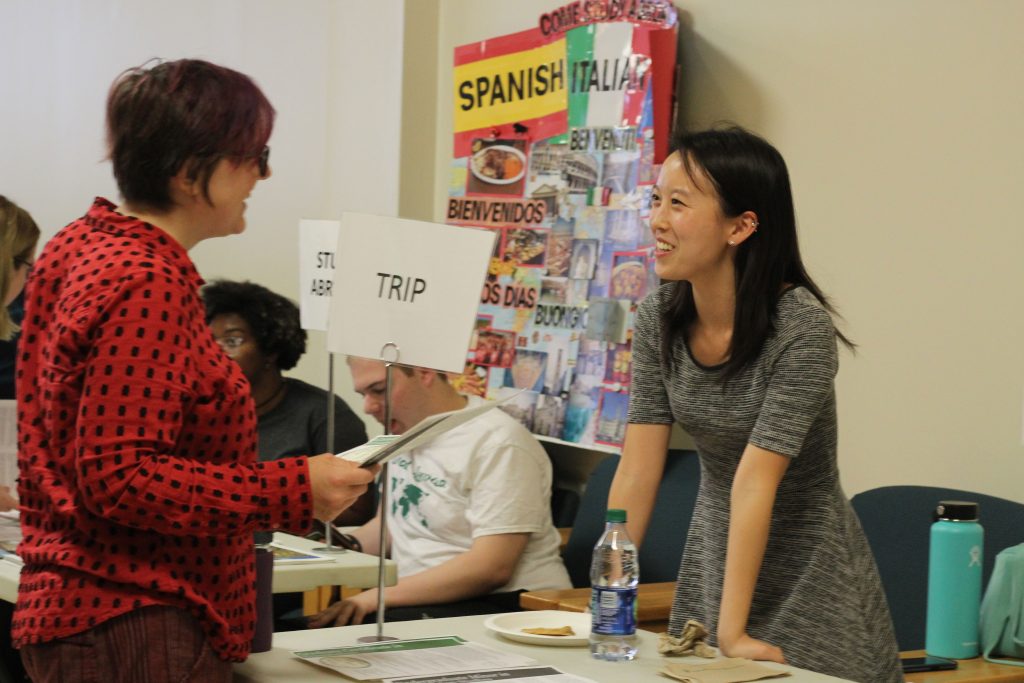
Popular destinations for Binghamton University students studying Spanish include Madrid and Barcelona. For Francophones, it’s Paris. But on Monday night, the destination for students interested in studying abroad was much closer to home: College-in-the-Woods Dining Hall.
Students lined the upper level of the dining hall at the Romance Languages and Literatures Open House on Oct. 23, walking from table to table and learning about opportunities ranging from summer programs to semester-long immersions.
Dora Polachek, a visiting associate professor of French and director of undergraduate studies in romance languages, helped guide students through the room and offered insight into the offered programming’s value.
The open house was organized through cooperation between Polachek and the College-in-the-Woods administration, including Stephen Ortiz, the collegiate professor of College-in-the-Woods and an associate professor of history.
“Our primary goal is to encourage students to consider majoring in one of our languages,” Polachek said. “With a solid grounding in a foreign language, you will have opportunities to open many more doors career-wise, as well.”
Ortiz said both departments work to support the University’s initiative of integrating learning into the residential experience.
“There is a lot of value in having academics be steeped into the fabric of a residential community,” Ortiz said.
Alexis Sikonyak, a junior double-majoring in environmental studies and geography, said there were benefits to holding the open house in a residential community, particularly because of the proximity to underclassmen.
“You’re exposing underclassmen to opportunities on campus that they may not be aware of or willing to go to if [the open house] were in an academic building,” Sikonyak said.
Programs offered are designed to interest everyone, from upperclassmen to students who attend BU with their foreign language requirement waived and hadn’t planned on continuing into college.
Many students who attend BU aim to enroll in one of the University’s many study abroad programs, including those who do not take a foreign language, according to Polachek. She said study abroad experiences could be more difficult for students who aren’t studying a language.
“Studying abroad is a very important dimension of the college experience, and if you study abroad and you haven’t taken language beyond one semester or two semesters or three semesters in high school, you’re not going to get out of that program what you could,” she said.
Dana Stewart, chair of the department of romance languages and associate professor of Italian and medieval studies, said there’s both cultural and economic value in double-majoring in a foreign language.
“Every field nowadays is increasingly international,” Stewart said. “The world is getting smaller; it’s more connected than ever, and so employers in any field would appreciate somebody with some international experience and experience with dealing with other cultures.”


